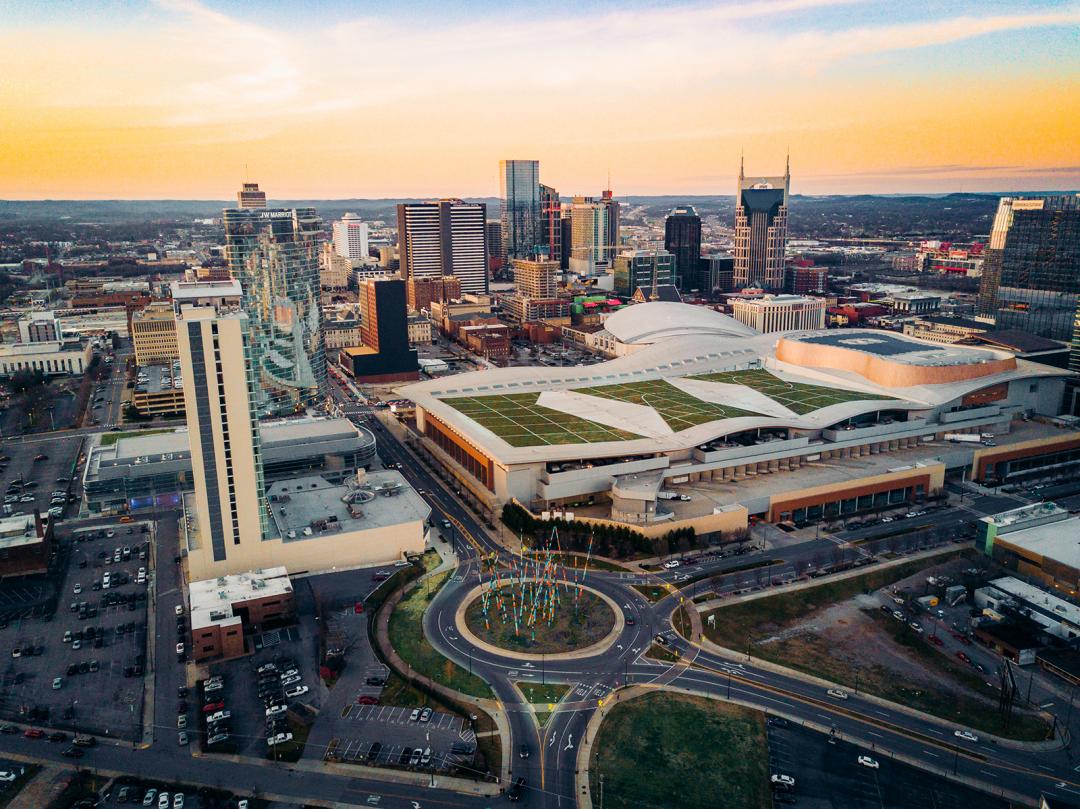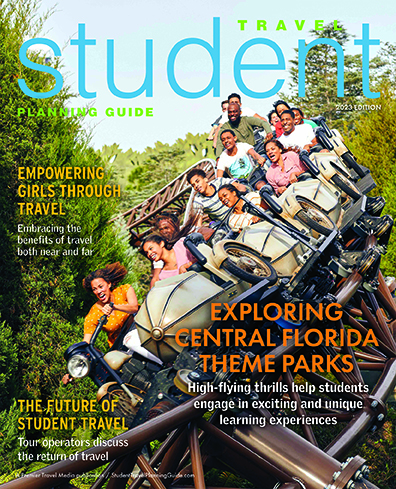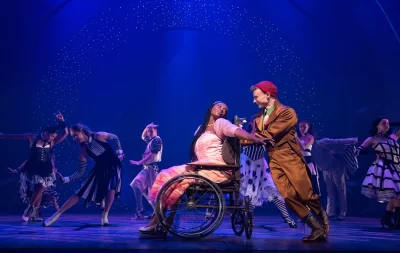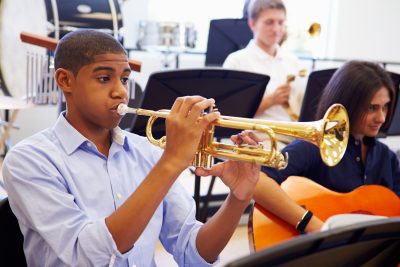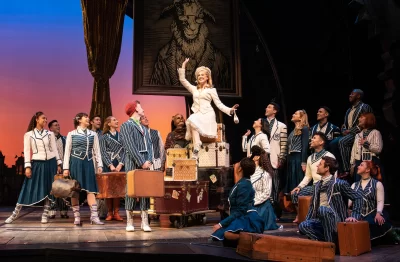Home to country music and the Grand Ole Opry, most folks associated Nashville, Tennessee with the music that seems to so totally encapsulate the city, but that’s just part of its story. Founded in 1779 and named for a revolutionary war general, the city earns its nickname of “Athens of the South” with its large number of universities and colleges, at least 16! Sitting on the banks of the Cumberland River, the city manages and maintains several large natural parks for students to learn and explore in. These unique attributes make Nashville an appealing choice for fields trips looking for a diverse and engaging STEM experience.
Museums & Zoos
Ever-growing, ever-changing, the Nashville Zoo at Grassmere is a trip you’ll never experience twice. The ninth-largest zoo in the nation, it houses six thousand animals across three hundred species including the recent additions of two rare Sumatran tigers this past April. The zoo offers a number of field trip classes for K-12 students that cover topics like conservation and endangered species. Its new Veterinary Center provides an incredible scientific opportunity to not only talk and ask questions to keepers and doctors on the center’s observation deck but also watch live surgeries and operations. Groups can also take a docent-led tour throughout the zoo for a more informational visit as well as take a tour of the historic Grassmere House for a history lesson. There’s even a chance to go behind-the-scenes and learn about animal care, behavior and conservation efforts of the zoo. What more could a STEM trip ask for!
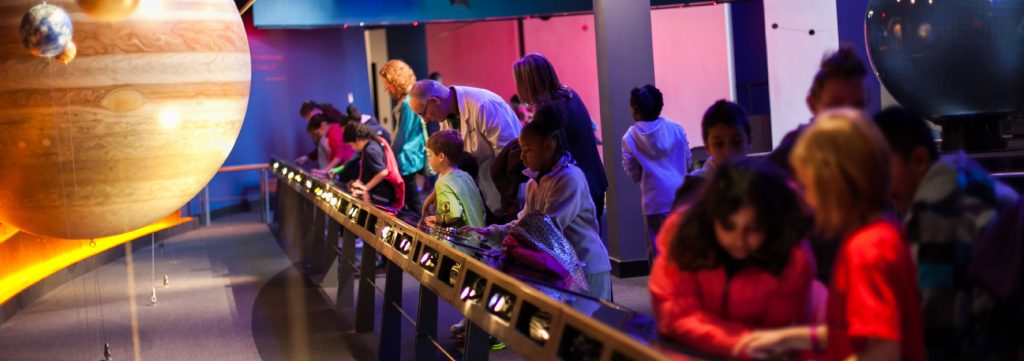
Credit: Adventure Science Center
With a name like Adventure Science Center, a visit here is a no brainer! Home of more than 175 hands-on exhibits as well as a planetarium there’s a nearly endless list of things to do. Students can wander through exhibits like BodyQuest, a mini medical center and ambulance where they check blood pressure, look over x-rays and take ECG of Pat the Patient. The Adventure Science Center even has a flight simulator where you can take to the skies as a pilot or gunner and feel every turn and tumble in real-time. Take advantage of the center’s Planetarium shows narrated and featuring such stars as Mark Hamill and Ewan McGregor and learn about stars and astronauts. Enhance the field trip with one of the optional 25-minute science demonstrations or longer, 50-minute, learning labs covering everything from fluid dynamics to the science behind special effects seen in film and tv.
A rather unique spot, the Lane Motor Museum is a mixture of history and technology all in one. Home to a collection of over 580 cars, bikes and motorcycles, the museums is one of the few in the country to specialize in European automobiles. The self-guided tour is the default options for groups visits, allowing visitors to go at their own pace and learn about the cars that interest them, though that is far from all the museum has to offer. The museum has numerous guided activities like transportation tours and live demonstrations of the many still-working vehicles. Students can marvel and learn about the variety and diversity of automobile design found around the world and throughout the industries history, as well as what’s changed and why over the years. Work with Lane Motor ahead of time to create a personal lesson for your students when they visit to be taught by educated staff on a variety of subjects or just have some fun with a scavenger hunt through the exhibits.
Universities & Academia
Owned and operated by the prestigious Vanderbilt University, the Dyer Observatory is a chance to meet with working astronomers and gaze at the stars in a visit that is sure to be both fun and educational. Situated in Tennessee’s beautiful Radnor Lake State Park, the observatory house four telescopes, including a solar telescope, a sundial garden and an art sculpture piece called “Star Chamber”. Field trips to the observatory typically last an hour to an hour and a half, but visiting on their event days like Telescope Nights or Open House can serve to heighten the trip. During their Open Houses, visitors get a chance at a guided tour through much if not all the observatory has to offer led by the site’s staff. There are also several educational programs tailored to each unique location at the observatory that teach students about the history and use of sundials or explore the center’s meteorite collection.

Credit Vanderbilt University
Industry & Technology
Ever seen how the modern automobile is created? Now’s the chance! Visitors to the Nissan Smyrna Factory have the opportunity to take a tour with helpful and knowledgeable guides through the vast industrial facility and see the five parts of car assembly happen right before their eyes. Starting off with a short video on exactly how the cars are assembled, students then take a ride via trolley through the live factory and see both robots and the facilities 8,000 workers create cars. Learn just how much robots are apart of the assembly line process these days, and how humans are still utilized in an ever-increasingly automated industry. The largest Nissan factory in North America, tours happen twice a week and accommodate 60 people a tour, the perfect size for any science or technology class.
Nature/Outdoor Activities
Hit the trail and hike a mile or twelve at the Shelby Bottom Nature Park. This 930-acre natural park sits on the floodplain of the Cumberland River and along with its nature center staff provide an all-in-one opportunity to explore and learn in a unique outdoor environment. Field trips to Shelby Bottom Nature Center are listed as lasting about an hour to an hour and a half and include a guided visit through some of the many interesting features of the park such as its pond, museum and garden and even includes a hike along one of the many trails. Couple the experience with some of the educational programs the center offers like Classification 101, where students learn the how’s and the why’s of scientific classification of plants and animals, and “What in the World is an Ecosystem”, where students learn the different ecosystems of the park and their unique interactions with each other.
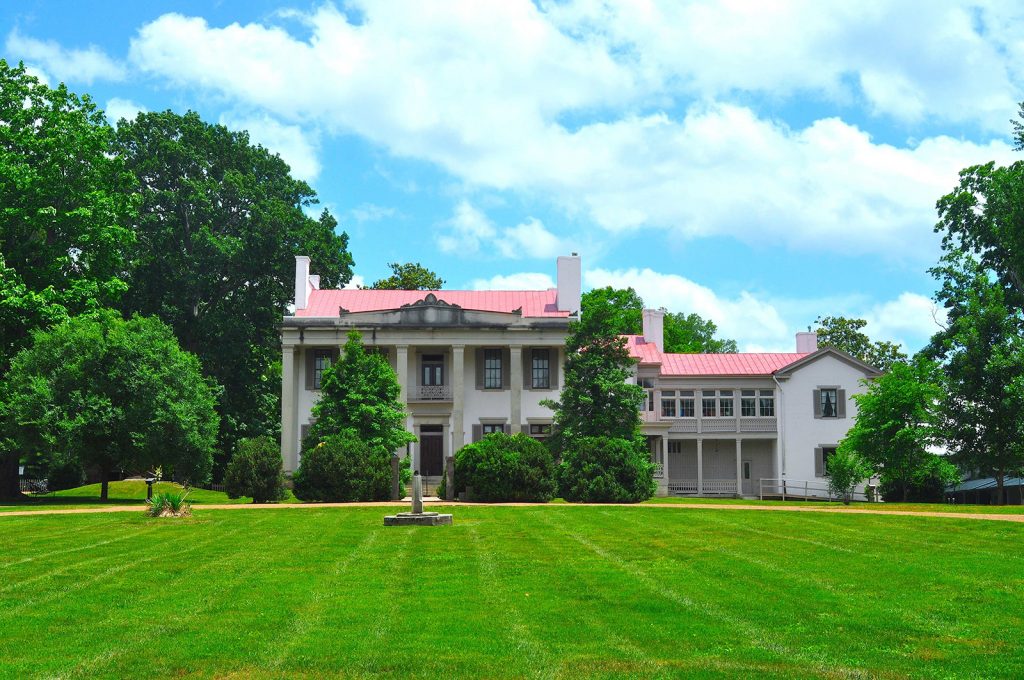
Belle Meade Plantation, Credit: Visit Music City
Take a step into the past at the Belle Meade Plantation. This educational non-profit location was once the home of Confederate General William Giles Harding and after the war was a world-renowned breeding ground for thoroughbred racehorses. Now it allows students and teachers alike a glimpse into 19th-century technology, architecture and life. Take the “100 years of history” tour and learn about the Harding-Jackson family history as well as the history of the enslaved workers who lived and worked the plantation, ending with a scavenger hunt that helps demonstrate and develop logic, map reading skills and teamwork. For a more technology-based tour, the “Everyday Life on the Plantation” shows just how people live and utilize the technology of the time back in the 19th century with lessons on the science of refracting light and early lighting techniques. A mixture of STEM and history, Belle Meade Plantation is the perfect embodiment of the phrase, “To know the future, first, you must understand the past”.

